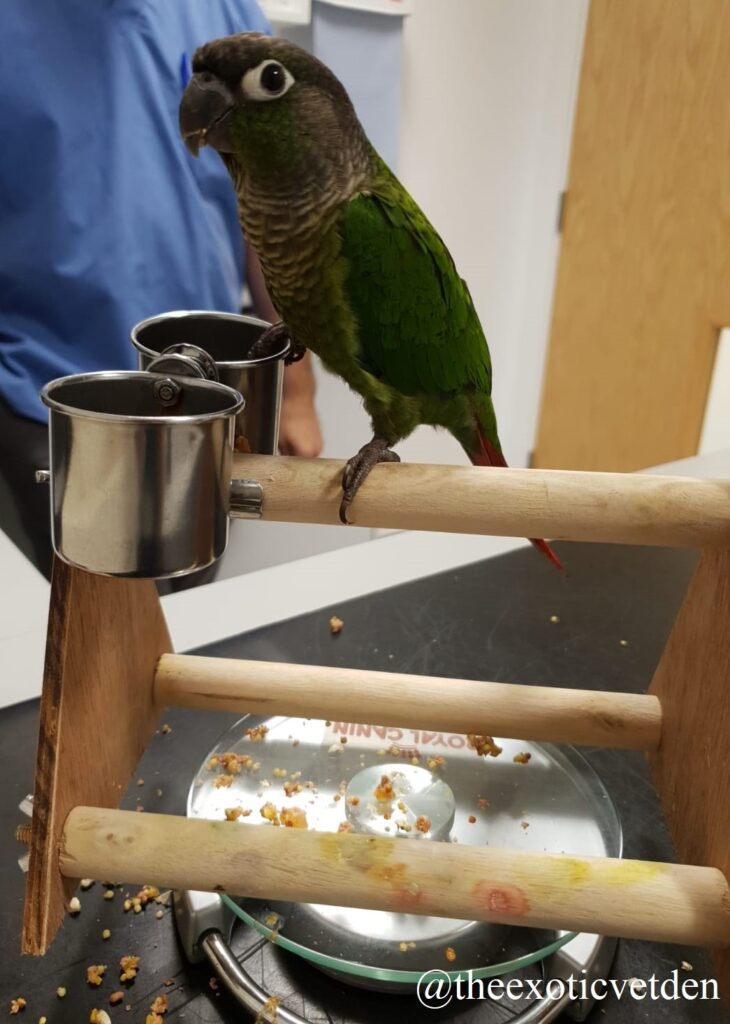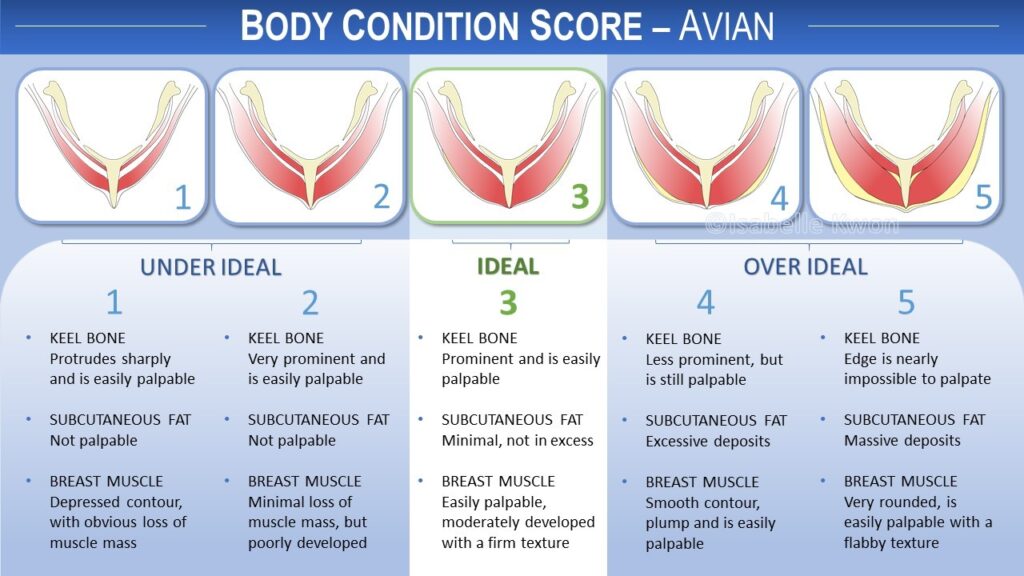This website uses cookies so that we can provide you with the best user experience possible. Cookie information is stored in your browser and performs functions such as recognising you when you return to our website and helping our team to understand which sections of the website you find most interesting and useful.
Is my bird sick?
Birds, in general, tend to hide symptoms of disease. Some authors have suggested that this is an instinctive behaviour to try not to drag attention from predators in the wild or keep the hierarchy on the flock. The problem is, this behaviour can make it difficult to realise that our pet bird is in an early stage of disease if we don’t pay close attention to the subtle signs they show.
We can routinely check the weight and pectoral muscles in our birds as a standard measure of health.
Weight:
Weight is one of the most useful tools that we have got to assess if a bird is healthy. An adult healthy bird should maintain its body weight quite constant, with small variations. Normally, when a bird is ill in some way, the first thing they do is lose weight due to an increase in energy requirements to fight against the disease itself but as well because they usually tend to eat less (even if they will act as they are eating, try to hide the problem. Then usually we will see them picking at the fruits and vegs that we give to them but not eating them, or just throwing the seeds on the floor). This is more difficult to happen in birds of prey as they are fed with specific amounts of food to try to keep the body weight in optimal condition to fly, but still, they can eat normally and still lose weight, depending on the disease.
So regular weight checks, about once a week, with a suitable scale (usually a small cooking scale that can give the weight in grams for small birds or a normal cat scale or similar for bigger birds) is very useful.

Pectoral muscle:
In the other hand, we can check for pectoral muscle mass. This are the two main muscles located on the front of the chest, divided by a bone named keel. In flying birds, this muscle should be well developed and the bone should be just slightly palpable. In a bird that has lost weight the bone will be more prominent and in fat birds, usually is difficult to find. Not all birds will have the same muscle mass as this can vary depends on the flying they do and the species. Check regularly these muscles to familiarize with the normality for your bird would be a very good idea. (Image from Raptors and Poultry)

Other signs:
Apart from these two main things, there are several behaviour and findings that we can use to suspect that a bird is ill.
- Behaviours changes:
- More docile or more aggressive
- Not active at times when it is usually active or vice versa.
- screaming more than usual or less than usual
- Not interacting with other birds or people as usual.
- Not going straight for the treats or food if it normally does so.
- Sleep more than usual or in abnormal times
- Tail bobbing when standing on the perch.
- Reluctant to fly
- Other physical and more advanced signs of disease would be:
- Dropping wings
- Lethargy
- Stand on the bottom of the cage or not moving from the nest or perch
- Limping
- Sunken eyes
- Nasal discharge
- Feathers are not in a good state in any part of the body (dirty, broken, picking feathers…)
- Vomits
- Seizures
- Walking in circles
- Bleeding from any area
- Abnormal smell from droppings or abnormal colours, especially very green faeces.
Conclusion:
Most of these ideas and signs are unspecific, so if your bird shows maybe just one, it could be for other reasons. The more signs your bird displays, the more like it is that it is ill.
If you think your bird can be sick, bring it to your avian veterinarian as soon as possible.
If you find this post helpful, please share with everyone with a bird or that could be interested so more people know what to look for if their bird is sick. Thank you for reading the post, and I hope it was interesting.
References:
- Doneley, B., 2016. Avian medicine and surgery in practice. 2nd ed.
- Meredith, A. and Johnson-Delaney, C., 2010. BSAVA manual of exotic pets. 5th ed.
- https://raptorsandpoultry.tumblr.com/post/181403633602/disclaimer-i-made-this-avian-body-condition-score
